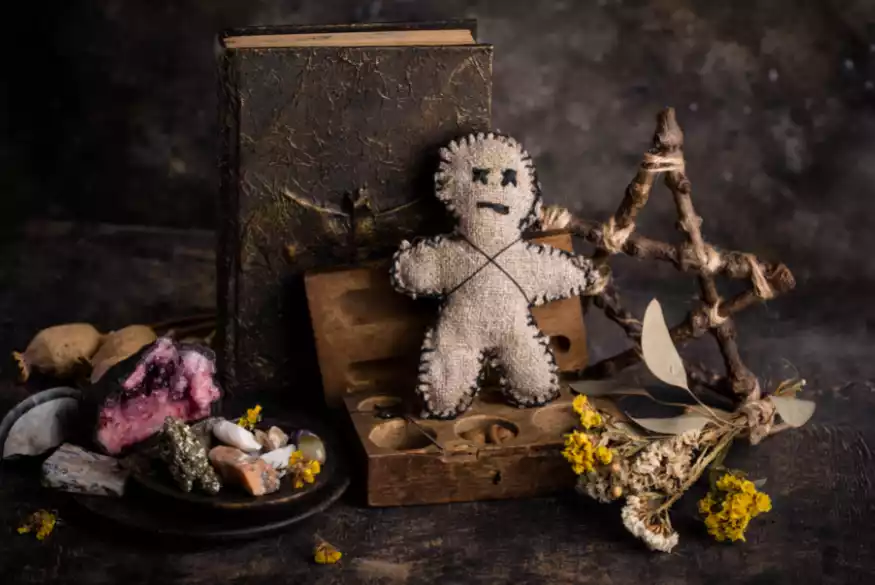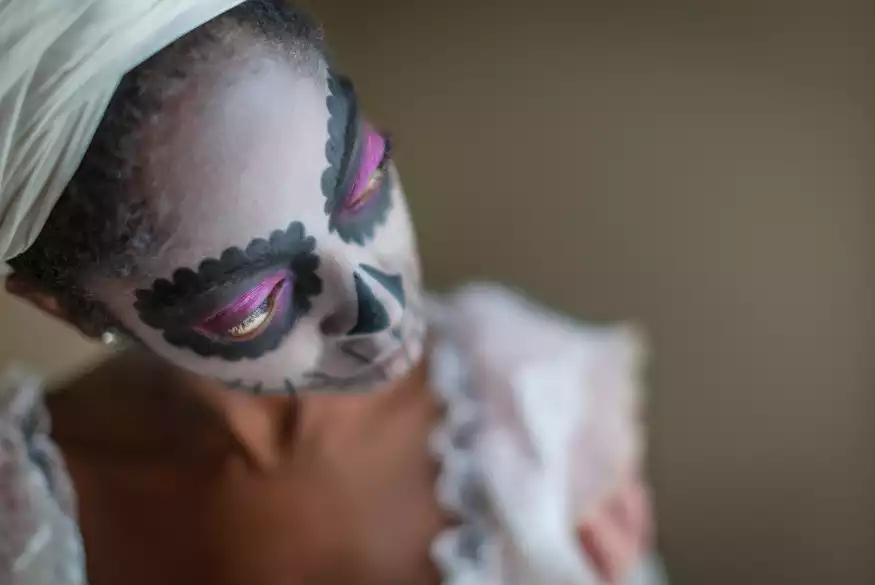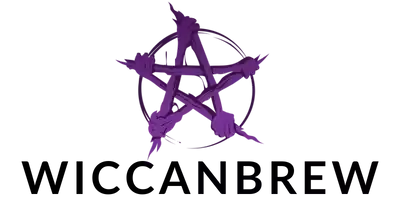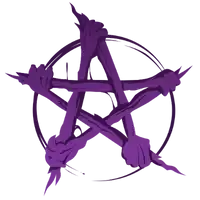Table of Contents
Voodoo is an ancient religion with roots in West Africa, Haiti, and the Caribbean region. Its followers believe that through trancelike states and divine connection, they can summon powerful forces to heal illnesses, bring good luck, and even punish enemies if desired.
Discover the True Beauty of Voodoo
While it is true that the mere mention of Voodoo can leave many with a sense of unease, one must understand the context and history behind it. Indeed, voodoo’s connotations have unfortunately been distorted by certain sensationalized accounts and practices – but at its heart, it is a religion rich in rituals, magics, and deep spiritual traditions that seek to bring healing, protection, and prosperity to people.
Furthermore, many practitioners are careful to instill safeguards when casting their spells to ensure that the client does not suffer any harm; thus, those seeking help from these magics can rest assured that no malicious intent will be employed against them. On top of this, dedicated rituals such as ancestor worship are key to many Haitian communities who believe in paying respect to their elders who have passed on – something which should surely not be viewed as sinister or dangerous.
So while it may appear that Voodoo and its various magics are cloaked in mystery, fear, and evil – this generalization simply fails to capture its true beauty and underlying purpose: an ancient faith shared by millions around the world who seek joy, healing, and peace among its followers.
Rituals and Practices of Voodoo
It is associated with magical rituals, spiritual ceremonies, and herbal medicine. Voodoo gods or Loa act as intermediaries between practitioners and the supernatural. Each deity has its own set of powers and abilities that can be used to help those who call upon them for aid.
Voodoo rituals are often accompanied by music, drums, and dance; this helps practitioners to enter a trance-like state which allows them to communicate with their deities. The ritual itself consists of offerings such as food or drinks; this is believed to help appease the gods. During the ritual, special mystical words are said aloud as part of a prayer which is intended to ask permission from the Loa (or spirits) so that they may do him/her a favor.
Additionally, some Voodoo rituals involve animal sacrifice. This practice has caused much controversy over the years due to many religious groups condemning it as immoral and cruel. However, many Voodoo followers disagree – they believe sacrificing animals to their gods will bring blessings in return, such as health or prosperity.
Beliefs and Principles
One important aspect of Voodoo is its belief in spirits – both good ones (benevolent) and bad ones (malevolent). It believes in communing with these entities so that one’s desires can be fulfilled – this could range from finding love or success in life all the way up to defeating enemies or gaining wealth and control over others.
The core beliefs of Voodoo also promote equality among people regardless of race or gender; this idea is intended to unify practitioners no matter what region they come from because at its core lies the same fundamental principles about connecting people with nature and the divine powers above us all.
While Voodoo, Obeah, and Santeria are distinct spiritual systems that come from different cultural backgrounds, they all share the belief in a powerful force controlling the universe and the practice of using ritual to access this power.
Comparing Voodoo to Wicca – What are the Differences?

Voodoo and Wicca are two very distinct spiritual practices, each with its own history and beliefs. While both offer adherents a variety of religious philosophies and concepts, there are some major differences between the two.
Perhaps the most significant difference between Voodoo and Wicca is in their origin stories. Originating in West African cultures, Voodoo was brought to the Americas through the slave trade centuries ago. On the other hand, Wicca is a form of modern-day Paganism developed in England in the 1940s by Gerald Gardner, who sought to reconstruct ancient Pagan beliefs from archaeological evidence.
In terms of practice, there are also some marked differences between Voodoo and Wicca. Unlike Wiccan rituals, which tend to be private ceremonies for solitary practitioners or small covens, Voodoo rituals are typically held in public settings like temples or cemeteries for larger groups of believers and observers. Additionally, while many people associate Voodoo with black magic, such as hexing or cursing others, this is not typical practice within Wiccan traditions where practitioners adhere to an ethical code that forbids using spells against members of their community.
Overall, while there may be some similarities between these two spiritual paths, especially when considering their shared reverence for nature and belief in spirits or deities – they remain fundamentally different belief systems with vastly different origins and practices. Regardless of how one chooses to pursue their spiritual path – either through Voodoo or Wicca – it’s important for everyone to understand the unique distinctions between them before making any choices about which one to follow.
Exploring 10 Powerful Lwas
Voodoo is a form of mysticism that has become intertwined in the culture of its native Caribbean islands, notably Haiti and its surrounding islands. There is a certain level of mystery that surrounds the dark rituals and secret acts that take place within Voodoo ceremonies – with practitioners believing in specific forces or energies known as Lwas (or Loas). These unique entities are believed to be able to influence the world around them through their divine powers, which can often be called upon by performing certain acts of homage – usually involving offerings such as food/alcohol or even animal sacrifice.
There are many different kinds of Lwas, each one representing its own individual domain – from love and beauty to death and resurrection – all working together to stamp out injustice & keep chaos from taking hold. Let’s take a closer look at ten of Voodoo’s most prominent figures: Erzulie, Baron Samedi, Legba, Agwe, Gran Maître, Ogoun Badagris, Papa Guédé, Maman Brigitte, Kouzin Dantor & Kalfu – uncovering the true mysteries behind their ancient powers and rich traditions.
Erzulie
Also called the Goddess of Love, this particular Lwa is one of the oldest and most beloved entities in Haitian Voodoo. Characterized by her devotion to beauty and extravagant lifestyle, she is also referred to as the protector of women and those who are romantically inclined.
Baron Samedi
One of the darker Lwas, Baron Samedi, answers to matters concerning death and resurrection, as well as being responsible for all violent or sexual activities. His appearance is said to be that of a man dressed in a black tuxedo with a top hat sitting atop his head.
Legba
Legba is a master of mischief and gateway to the spirit world – often seen as the most important Lwa in Voodoo. He has been portrayed as both an old man and a young child, symbolizing his ability to change form at will whilst presenting himself to his faithful followers. Referred to as the Guardian of Crossroads, he is responsible for interpreting dreams, enabling communication between practitioners and other legendary spirits, and providing guidance on matters of morality and spirituality. Legba is also said to grant access to portals that link one realm with another – making him an essential ally for those wishing to explore their spiritual potential.
Agwe
Agwe’s domain concerns matters related to sea travel, and he can often be found watching over seafarers in their boats; it is believed that he protects them from any potential danger they may face while at sea. It’s also said he was once married to Erzulie before going on to marry two goddesses from Africa instead – Mami Wata & La Sirine (both associated with water)
Gran Maître
Also known as Grand Zombi or Grand Zombi Damballah, this Lwa serves as both benevolent guide & gatekeeper to other mysteries in Haitian Voodoo – all questions regarding the afterlife must go through him first before being passed on elsewhere.
Ogoun Badagris
This particular Lwa represents war & game hunting, wielding an iron bar that serves as a weapon against impossible obstacles or challenges set forth by his followers – while also being a protector against any potential wrongdoers who wish ill upon them & their family members/loved ones alike.
Papa Guédé
This spirit governs life transitions such as birth/death and rebirth — particularly concerning children — making sure that they meet their destiny peacefully and arrive safely at the end of their journey on Earth; he will typically appear alongside Legba when needed too!
Maman Brigitte
As Papa Guédés wife, Maman Brigitte oversees similar transitions between life stages but from a female perspective – so she takes care of young girls who are reaching adulthood… ensuring that they remain safe until they finish crossing over into womanhood successfully!
Kouzin Dantor
As Haiti’s patron saint of motherhood, Kouzin Dantor looks out for pregnant mothers-to-be or those looking after babies and young children – she appears often holding her baby son while lifting her rattles up into the air. It’s said that nursing mums should always have an image of her nearby… just in case!
Kalfu
The lord of darkness himself – Kalfu, presides over nighttime affairs such as sorcery, weather changes, and curses (which become more powerful under moonlight). He can be identified by his red eyes & stuffed bird, which he keeps close at hand whenever possible.
The Benefits of Voodoo Spells
Voodoo spells have been a source of mystery, fascination, and debate for centuries. Indeed, many people seem to be under the mistaken impression that all rituals are designed to hurt and punish, for example, to punish a partner who has cheated on the spell caster with another woman. In actual fact, love spells and, indeed, Voodoo itself is nowhere nearly as scary or occult as you may think.
The reality of the matter is that most Voodoo rituals involve prayerful petitioning of Loa (or spirits) so that they may grant favor such as health or prosperity in return. Alongside this, many believe in summoning powerful forces to bring good luck, heal illnesses or even lift curses if desired. While there are some extreme practices associated with Voodoo, such as animal sacrifice, which has caused much controversy over the years due to its cruelty – this does not constitute all of Voodoo culture.
Love magic is particularly potent because it taps into the powers of these Loa deities; this means that whatever requests or desires are made can become quickly granted. However, caution must always be taken when employing these magics – one potential consequence could be that the target of the spell ends up becoming insanely infatuated with the spellcaster – making it very difficult for them to end this relationship should they wish to do so.
Ultimately Voodoo spells can provide both a blessing and a curse depending on how they are used – but tapped wisely into its magical energies through respectful prayers and offerings, then great fortune could await those who call upon them.
Working with a Voodoo Practitioner

Working with a Voodoo practitioner is said to be one of the most powerful ways to tap into the magical energy and forces of Voodoo. It is here that many believe their wishes and requests will be swiftly granted after consulting with a spell caster – but caution must always be taken, as recklessly using voodoo spells can have serious consequences down the line.
Therefore, it is essential to use these magics responsibly and ethically – otherwise, you could experience severe retaliation from both the Loa spirits as well as the person who the spell was cast upon. Moreover, Voodoo practitioners urge those seeking love magic to only do so if they are genuinely in love with the target rather than simply lusting after them.
It’s also worth noting that Voodoo itself isn’t an inherently malicious practice; while there are some extreme rituals in its history, such as animal sacrifice, this does not reflect all aspects of its culture. In fact, despite its reputation for dark arts, it can also quite often be used for healing illnesses or lifting curses should any arise. So overall, it pays to tread carefully when venturing into the world of Voodoo – but if done properly, then great fortune could await those who call upon its magical powers!
Conclusion
In conclusion, Voodoo is an ancient faith whose followers seek communion with their gods through rituals involving music, drums, dance, and offerings while simultaneously seeking out equality within our societies as well as harmony between humans and nature alike.
High Priestess Memoona is a well-known and respected spell caster and magical practitioner with more than five decades of experience. She is a master of her craft, having used her powerful abilities to bring people joy, unconditional love, and prosperity. With her unique approach to spell casting, High Priestess Memoona has helped countless individuals manifest their life dreams and achieve their goals. Her expertise and dedication to the craft have made her a highly sought-after Spell Caster, and she is proud to be able to offer her services to those who seek her aid.

